The plot of the variation of potential difference across a combination of three identical cells in series, versus current is as shown in figure. What is the emf and internal resistance of each cell?
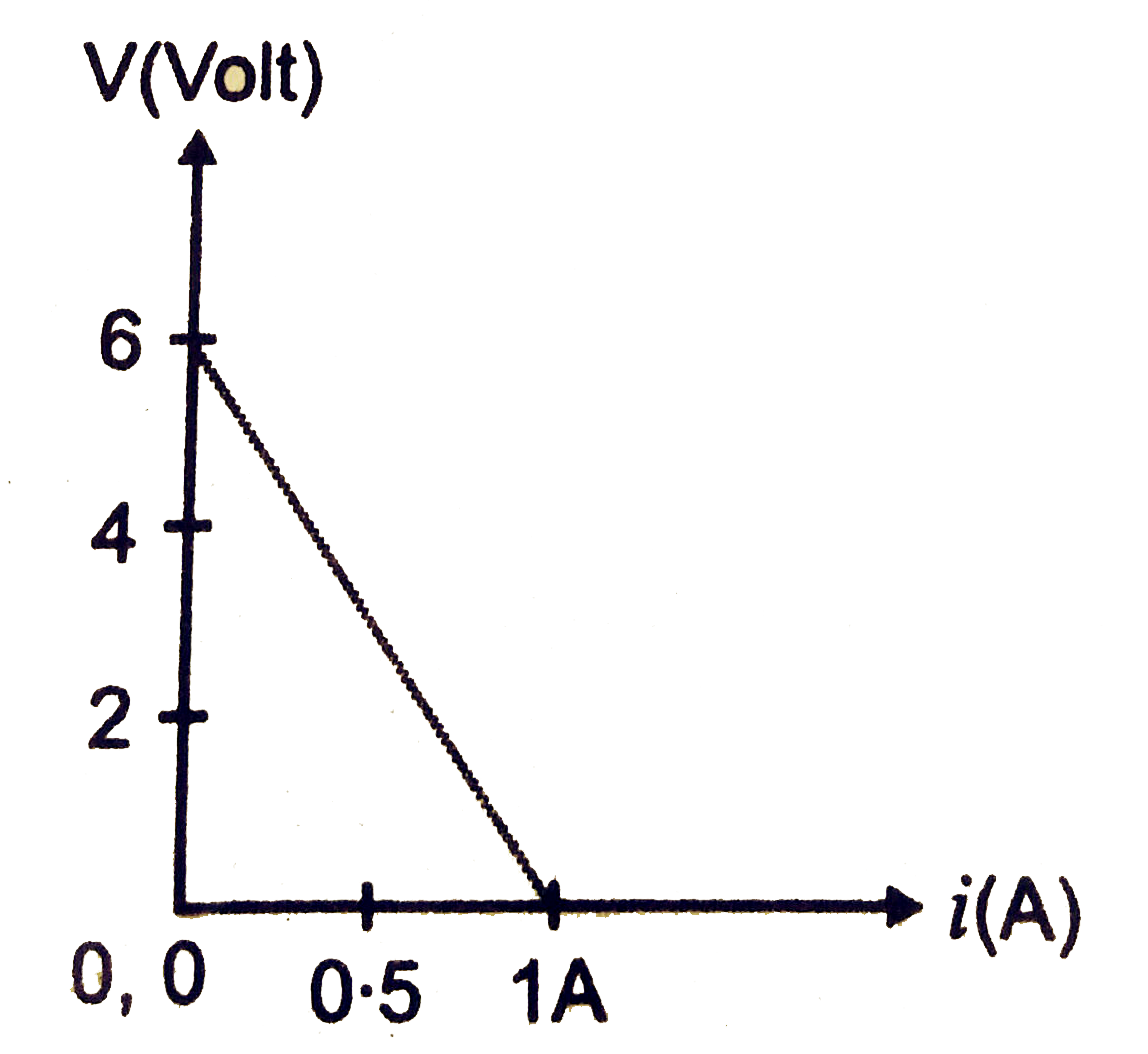
Total emf of three cells in series (3ε)
= pot. Diff. corresponding to zero current
∴3ε=6Vorε=63=2V
The internal resistance of each cell
r=εImax=21=2Ω
Topper's Solved these Questions
- CURRENT ELECTRICITYBook:PRADEEPChapter:CURRENT ELECTRICITYExercise:Conceptual Problems
Explore 3 Videos
- CURRENT ELECTRICITYBook:PRADEEPChapter:CURRENT ELECTRICITYExercise:Very short Q/A
Explore 7 Videos
- COMMUNICATION SYSTEMSBook:PRADEEPChapter:COMMUNICATION SYSTEMSExercise:MODEL TEST PAPER-2
Explore 9 Videos
- DUAL NATURE OF RADIATION AND MATTERBook:PRADEEPChapter:DUAL NATURE OF RADIATION AND MATTERExercise:Exercise
Explore 191 Videos
Similar Questions
The following graph shows the variation of terminal potential difference V, across a combination of three cells in series to a resistor versus the current I :
(i) Calculate the emf of each cell. (ii) For what current I, will the power dissipation of the circuit be maximum ?
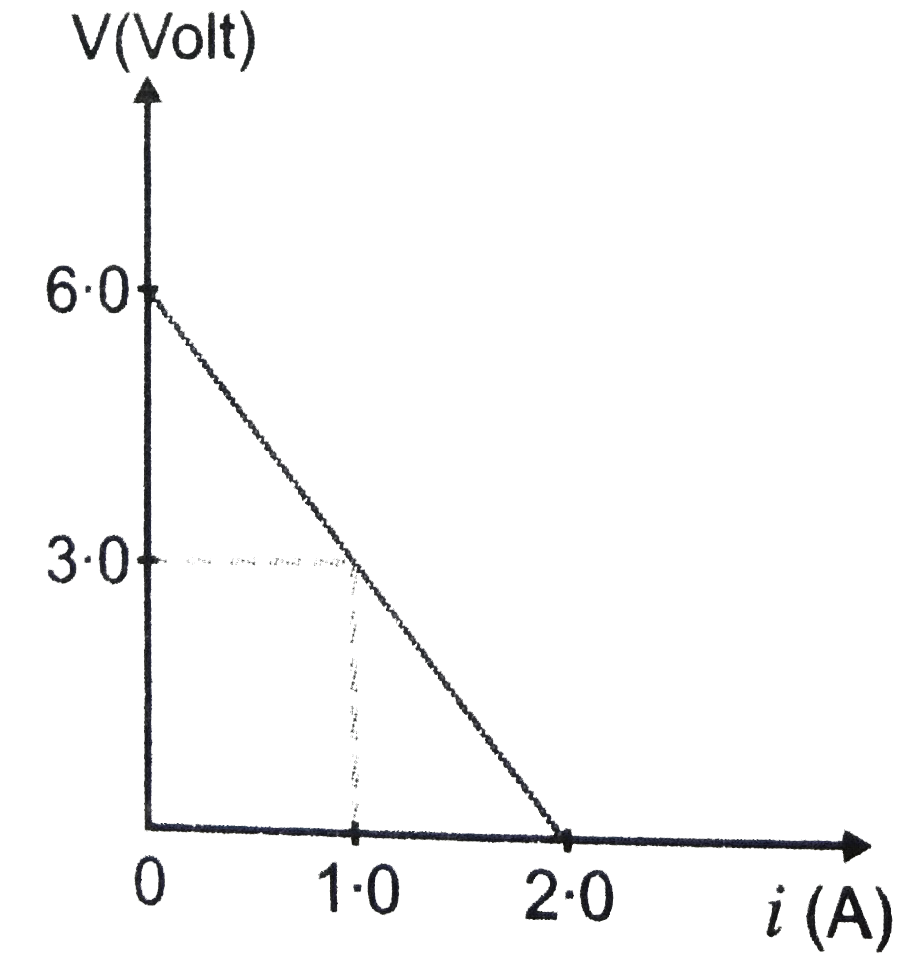
View SolutionThe adjoining graph shows the variation of terminal potential difference V, across a combination of three cells in series to a resistor, versus the current, I:
(i) Calculate the emf of each cell. (ii) For what current I, will the power dissipation of the circuit be maximum ?
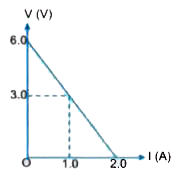
View Solution
Knowledge Check
For a cell, the graph between the potential difference (V) across the terminals of the cells and the current I drawn from the cell is as shown in figure. Calculate the e.m.f. and the internal resistance of the cell.
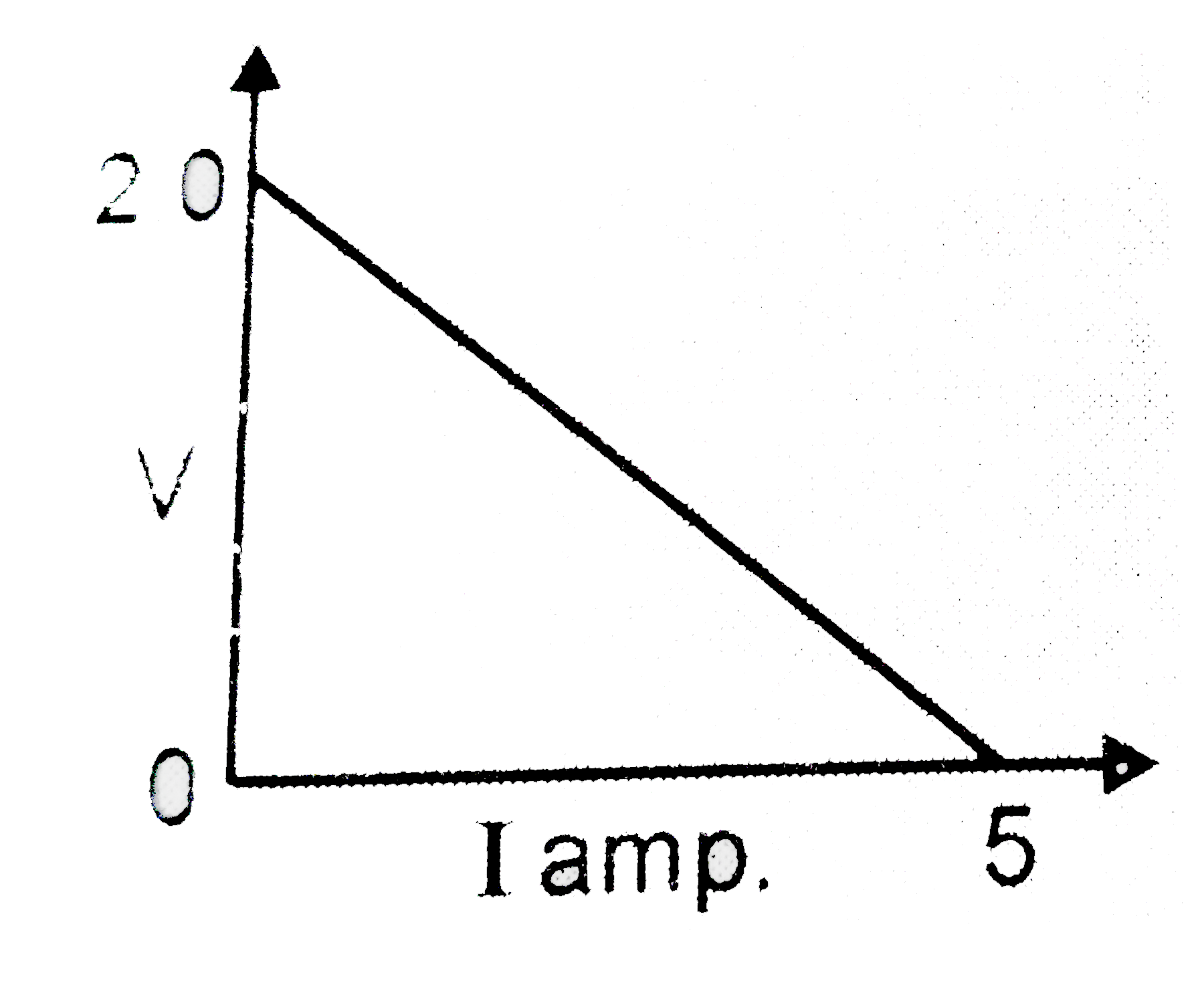 A4F3KB3F4KC4FKD2FK
A4F3KB3F4KC4FKD2FKFor a cell, a graph is plotted between the potential difference V across the terminals of the cell and the current I drawn the cell. The emf and the internal resistance of the cell are E and r, respectively. Then
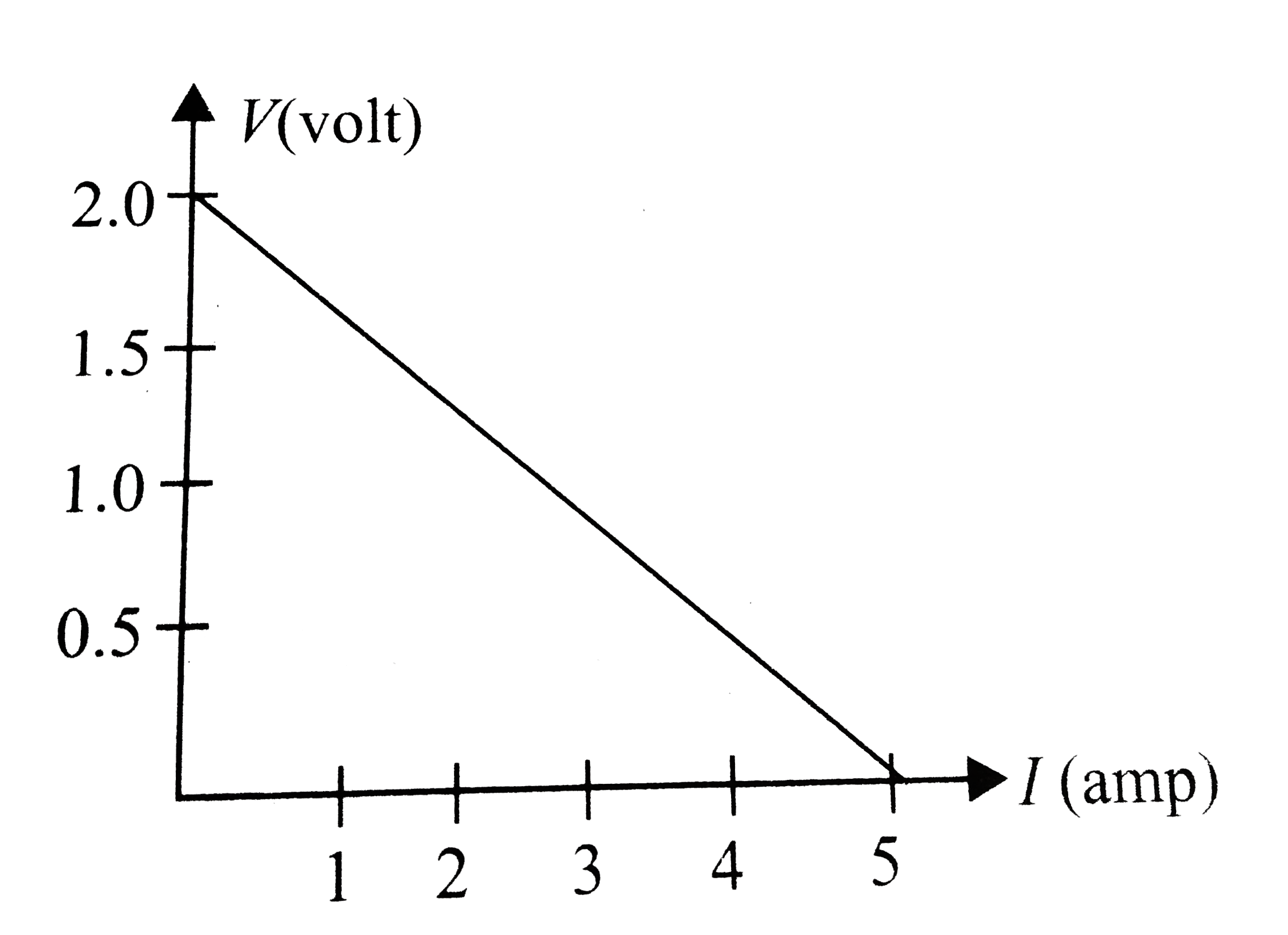 AE=2V,r=0.5ΩBE=2V,r=0.4ΩCE>2V,r=0.5ΩDE>2V,r=0.4Ω
AE=2V,r=0.5ΩBE=2V,r=0.4ΩCE>2V,r=0.5ΩDE>2V,r=0.4ΩA straight line plot showing the terminal potential difference (V) of a cell as a function of current (1) drawn from it, is shown in the figure. The internal resistance of the cell would be then:
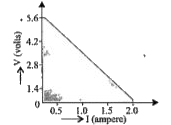 A2.8 ohmsB1.4 ohmsC1.2 ohmsDZero
A2.8 ohmsB1.4 ohmsC1.2 ohmsDZero
What is the relationship between potential difference across the terminalsof a cell and emf of the cell?
View Solution(a) The emf of a cell is E and its intenal resistance is r. Its terminals are connected to a resistance R. The potential difference between the terminal is 12V if R=3Ω and 16V if R=8Ω. Find the values of E and r
(b) When an unknown resistance is connected across a series combination of two identical cells, each of 18V, current through the resistance is 4A. When it is connected across a parallel combination of the same cells, the current through it is 3A. Find the unknown resistance and internal resistance of each cell.
( c) p identical cells, each of emf E and internal resistance r, are joined in series to form a closed circuit. One cell (X) is joined with reversed polarity. Find the potential difference across each cell except X and also across X.
(d) 12 cells each having the same emf are connected in series and are kept in a closed box. Some of the cells are wrongly connected. This battery is connected in series with an ideal ammeter and two cells of same emf as of 12 cells. The current is 3A when the cells and the battery aid each other and 2A when the cells and battery oppose each other. How many cells in the battery are wrongly connected ?
View SolutionWhat is the relationship between potential difference across the terminals of a cell and emf of the cell ?
View SolutionA straight line plot showing the terminal potential difference (V) of a cell as a function of current (I) drawn from it, is shown in the figure. The nternal resistance of the cell would be then-
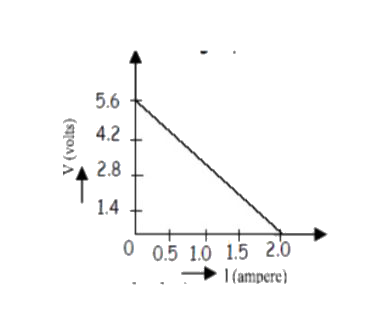
View Solution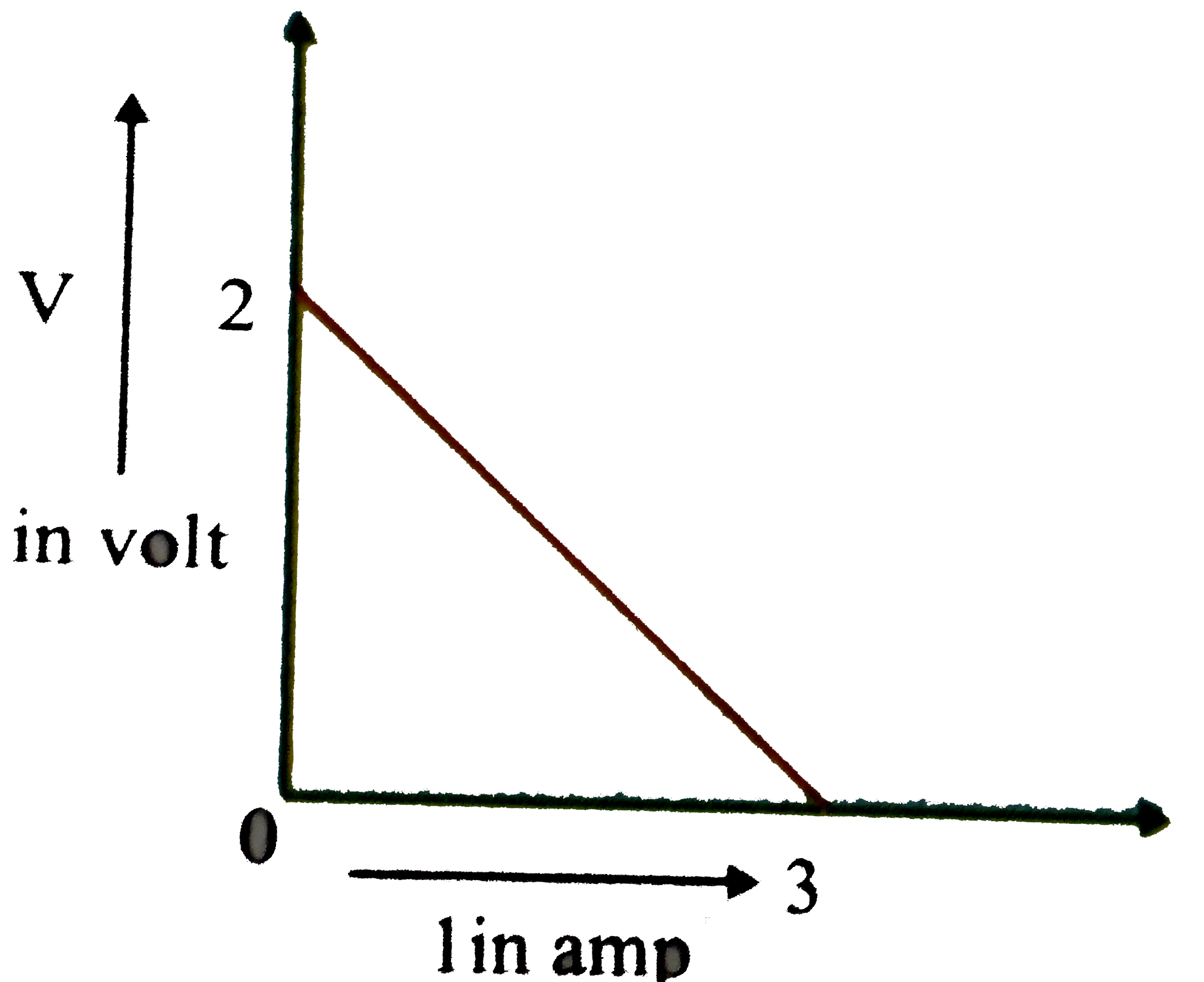
For a cell the graph between the p.d. (v) across the terminals of the cells and the current (I) drawn from the cell as shown. The emf and internal resistance is
View Solution

